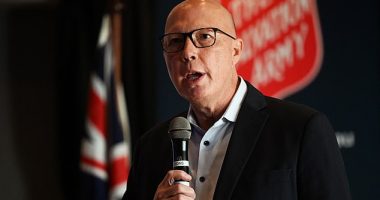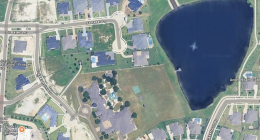The RBA today released its notes from the meeting, where the board ultimately decided to lift the nation’s cash rate by 25 basis points by 0.25 per cent to 3.35 per cent.
Minutes reveal that board members were concerned a pattern was emerging where incoming data – such as wages and inflation – was consistently higher than expected.

“The arguments for a 50 basis point increase stemmed from the concern that there had been a pattern of incoming prices and wages data exceeding expectations, and a risk that high inflation would be persistent,” the minutes reveal.
“If it did persist, there would be significant costs, including higher interest rates and a larger increase in unemployment later on.
“Relatedly, members observed that the longer inflation stayed high, the greater the risk of price and wage expectations moving higher.”

Other members of the board noted that Australian households were under increasing pressure and argued that a smaller 25 basis point hike would be more appropriate in the current economic environment.
”Many households were facing tighter budgets and, in aggregate, real incomes were falling,” the minutes say.
“There were plausible scenarios in which consumption growth was weaker than expected and inflation fell faster than forecast, as well as scenarios in which the opposite occurred.”

Ultimately, the board decided to lift rates by a more considered 25 basis points but warned that it was likely more hikes would be needed.
”Members noted that the forecasts for output and inflation had been prepared on the technical assumption of the cash rate reaching around 3.75 per cent,” the minutes say.
“Consistent with this, members agreed that further increases in interest rates are likely to be needed over the months ahead to ensure that inflation returns to target and that the current period of high inflation is only temporary.”
Read Related Also: Okay, You’ll Never Believe Which City Is Hosting the 2024 Democratic Convention

RBA boss under fire over nine consecutive hikes
The minutes of the meeting come as Reserve Bank Governor Philip Lowe faces increasing pressure over the bank’s decisions to raise rates rapidly.
“The finances of many households are under very real pressure from high inflation including higher rent, they are under pressure from higher government rising interest rates and falling housing prices, so it is a really challenging environment for many people at the moment,” he said.
“We recognise that the full effect of higher interest rates is yet to be felt, with some borrowers still benefiting from low interest rate loans.
”Based on the currently available information, the board expect that further increases will be needed over the months ahead to ensure that inflation returns to target.”

Inside Australia’s top 10 most expensive property sales of 2022
Despite the pressure, Lowe said he had no intentions of stepping down prematurely.
“I have a seven-year term as the governor of the bank and I intend to serve out that term. It’s an important job, it comes with public accountability and this is part of the process, but I intend to serve out that term,” he said.
“I return to the point that I made … the decisions that the Reserve Bank make are made by a board of nine people. Not just me.”
Lowe’s term is due to end in September.







